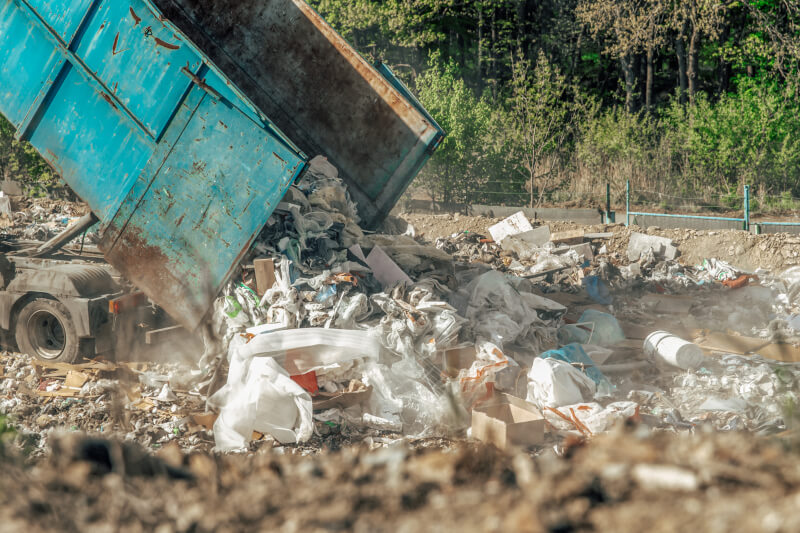You’re likely acquainted with the saying, “One man’s trash is another man’s treasure.” EcoPost, a visionary company based in Kenya, takes this adage to heart. How? By turning waste plastic into long-lasting fencing posts, they’re challenging the norms of waste management and creating an eco-friendly alternative to traditional wood fencing. Let’s dive into their inspiring story.
Innovation in Action: Turning Trash into Treasure
“When you look at waste plastic, you see trash. We see raw material,” says the representative of EcoPost. While the term ‘recycling’ is often thrown around in the context of waste management, EcoPost has moved past recycling towards ‘upcycling’, a process that turns waste into a product of higher quality.
This is seen in the creation of durable fencing posts from waste plastic, showcasing a profound innovative twist on standard recycling processes. Besides, the company’s ingenuity extends beyond product creation to distribution, managing to effectively infiltrate a market dominated by traditional wood products. This innovation addresses the critical environmental issue of waste management while creating useful products.
The Benefits of Their Innovative Technology
Operating out of Kenya, EcoPost has harnessed technology to convert 100% plastic waste into an attractive, long-lasting, and ecologically responsible lumber alternative, suitable for a variety of applications, from fencing to construction and even outdoor furniture. The innovative lumber created by EcoPost doesn’t decay and remains immune to termite attacks. Moreover, it exhibits the same workability as traditional timber, allowing it to be sawn, drilled, and fastened using common woodworking tools. Remarkably, the lifespan of EcoPost’s lumber exceeds that of ordinary timber.
EcoPost isn’t just about creating sustainable products; it’s also committed to addressing pressing environmental issues such as urban waste management, deforestation, and climate change. Moreover, it tackles societal challenges like unemployment by hiring local workers. The company has to its credit the creation of 50 direct and a staggering 5,000 indirect jobs. In terms of environmental impact, EcoPost has effectively repurposed 3 million kilograms of plastic waste, saving an impressive 850 acres of forest, thereby playing a key role in combating climate change.
Rising to the Deforestation Challenge
Deforestation is a significant problem in Kenya, largely due to the demand for wood to create products like fencing posts. EcoPost’s solution? “Our fencing posts, made from recycled waste plastic, are an effective alternative to timber, helping reduce the pressure on our forests,” their representative highlights.
EcoPost’s solution does more than just provide an alternative to wood; it disrupts a cycle of environmental degradation. By reducing reliance on wood for fencing posts, the company indirectly helps preserve habitats, maintain biodiversity, and mitigate climate change. Moreover, the ripple effect extends to communities, as preserved forests provide services such as water filtration and erosion prevention, which are vital for agriculture and other local activities.
Embracing EcoPost: The Market Response
EcoPost products are gaining acceptance in the market, marking a shift in consumer attitudes. “We are excited by the positive market response. More and more people are recognizing the value of our durable, eco-friendly posts,” shares EcoPost. This response is a testament to the potential of sustainable business models in Africa.
The positive response to EcoPost’s products in the market indicates a shift in consumer values, with a growing recognition of the importance of sustainability. This shift also reveals that businesses that can intertwine economic and environmental benefits have a competitive edge in today’s market. Furthermore, EcoPost’s success may encourage other startups to explore sustainable business models, fostering an entrepreneurial ecosystem oriented towards sustainability.
Implications for Waste Management and Forestry

By addressing waste management and deforestation simultaneously, EcoPost underscores the need for integrated solutions to complex environmental issues. Their operations reflect a broader trend in sustainability—the move towards a circular economy, where waste is minimized by turning it into valuable resources. This two-pronged approach also brings to light the interconnectedness of different sectors, highlighting the necessity of cross-sector collaborations in achieving sustainability goals.
EcoPost’s operations have far-reaching implications for waste management and forestry in Africa. “We are transforming the waste management sector, and at the same time, offering a solution to the challenge of deforestation. It’s a win-win scenario,” says the EcoPost representative.
Fueling Economic Growth
“Our operations provide income for waste collectors. Additionally, our products help farmers and businesses save money on fencing, allowing them to invest more in their core activities,” the company shares. EcoPost’s model has helped redefine value chains by creating a market for waste plastic. It has not only brought income to waste collectors but also spurred cost savings for farmers and businesses that use their fencing posts. This reinvented value chain exemplifies a ‘green economy’ model, demonstrating how companies can stimulate economic growth without jeopardizing the environment.
The Future of EcoPost
As for the future, EcoPost sees its model expanding across Africa. “We want to extend our model to other African countries. The challenge of waste management and deforestation is not unique to Kenya. We believe we can make a difference across the continent,” shares EcoPost.
EcoPost’s vision to extend its model across Africa highlights its ambition to scale sustainable solutions. It also acknowledges the universal nature of environmental challenges, implying that successful local solutions have potential applicability in diverse contexts. EcoPost’s planned expansion could inspire other African countries to adopt similar initiatives, contributing to a continent-wide shift toward sustainable development.
As EcoPost continues to chart a path towards sustainable development, it’s clear that their innovative approach isn’t just beneficial to their business, but it’s reshaping the industry as a whole. Let’s peek behind the curtain and unveil the secret sauce of EcoPost’s success. For companies inspired by EcoPost’s achievements and are keen on taking a similar route, here’s an exciting tip guide curated with a sprinkle of EcoPost’s charm and bucketloads of practical wisdom:
Eco Post’s “Turning Trash into Cash” Tip Guide:
- See the Unseen: Your waste material is not just garbage, it’s an opportunity. Look at plastic waste as a resource waiting to be tapped. Just like EcoPost sees every tossed bottle as a potential fencing post.
- Innovation is the Name of the Game: Invest in research and development. Crafting new ways to use waste is like creating magic potions, but instead of turning lead into gold, you’re turning waste into products.
- Partner Up: Don’t go it alone. Find strategic partners like waste collectors, environmental agencies, and even your customers. You’ll be surprised at how many people are ready to jump on your sustainable bandwagon.
- Create Value, Not Just Products: A product that solves a problem is more than just a product; it’s a solution. Like the way EcoPost fencing posts help reduce deforestation, your products should offer tangible value beyond their immediate function.
- Spread the Word: Don’t be shy about sharing your mission. The more people know about the importance of recycling and waste management, the better. It’s not just about marketing; it’s about sparking a movement.
- Invest in Your Community: Business is not just about profits, but also about people. Create jobs, improve lives, and watch as your community embraces your business. EcoPost’s operations, for example, provide income for waste collectors and enable farmers to invest more in their core operations.
- Keep an Eye on the Big Picture: It’s not just about local impact; it’s about creating a model that can be replicated. Who knows? Your unique business approach might be the next big thing in sustainable development across Africa!
About The Author:
Tumi Nkosi is a seasoned reporter with a focus on renewable energy and green technologies. With a degree in Environmental Science and years of reporting under her belt, Tumi provides Africa Nova’s readers with in-depth insights into the latest sustainable innovations across the continent.




